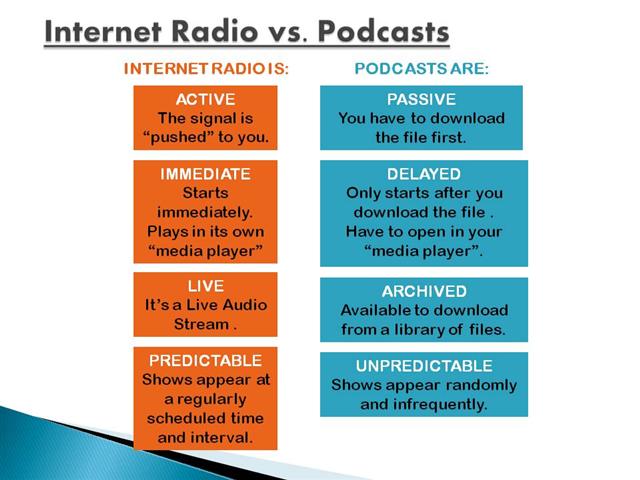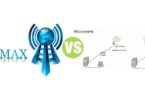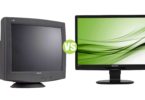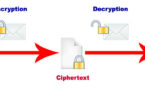Podcast vs Radio
Summary: Difference Between Podcast and Radio is that Podcasting is another popular method of distributing audio. A podcast is recorded audio, usually an MP3 file, stored on a Web site that can be downloaded to a computer or a portable media player such as an iPod. While Radio is introduced and used since early 1900. It allows communication at long distances by using the Electromagnetic waves that can travel through any vacuum

Podcast
Podcasting is another popular method of distributing audio. A podcast is recorded audio, usually an MP3 file, stored on a Web site that can be downloaded to a computer or a portable media player such as an iPod. Examples of podcasts include music, radio shows, news stories, classroom lectures, political messages, and television commentaries. Podcasters register their podcasts with content aggregators. Subscribers select podcast feeds they want to be downloaded automatically whenever they connect. Most smart phone users who subscribe to a wireless Internet service provider can listen to streaming audio and podcasts.
Radio
While Radio is introduced and used since early 1900. It allows communication at long distances by using the Electromagnetic waves that can travel through any vacuum whether it’s space or through any other environment. Radio is specially used to transfer binary data or voice wirelessly. Radio technology is also used in Wi-Fi to connect computers wirelessly.
Broadcast radio is a wireless transmission medium that distributes radio signals through the air over long distances such as between cities, regions, and countries and short distances such as within an office or home. Bluetooth, UWB, Wi-Fi, and WiMAX communications technologies use broadcast radio signals.
Cellular Radio Cellular radio is a form of broadcast radio that is used widely for mobile communications, specifically wireless modems and cell phones. A cell phone is a telephone device that uses high-frequency radio waves to transmit voice and digital data messages.
Some mobile users connect their notebook computer or other mobile computer to a cell phone to access the Web, send and receive e-mail, enter a chat room, or connect to an office or school network while away from a standard telephone line. Others watch mobile TV, which is a service that provides television programs over the cellular network. Personal Communications Services (PCS) is the term used by the United States Federal Communications Commission (FCC) to identify all wireless digital communications. Devices that use PCS include cell phones, PDAs, pagers, and fax machines.
Also Read:
Difference Between Streaming and Podcast
Difference Between Streaming and Broadcasting
Difference Between Streaming and Downloading







Leave a Comment
You must be logged in to post a comment.